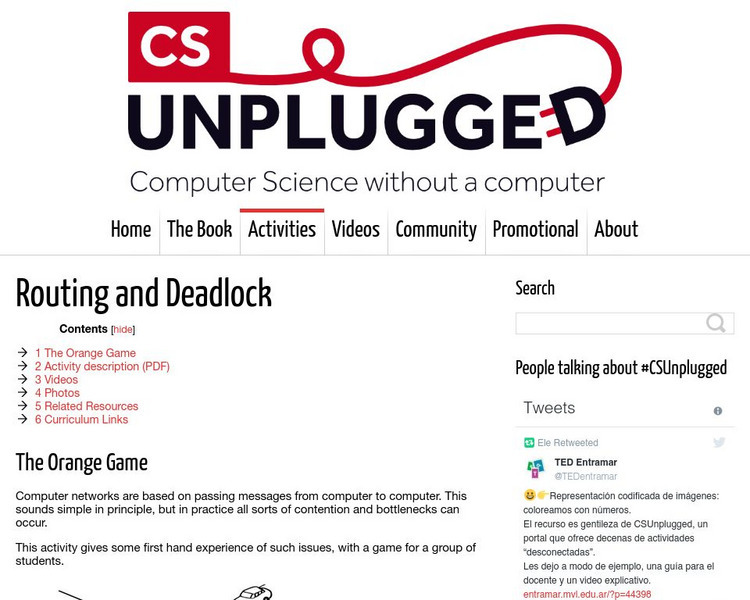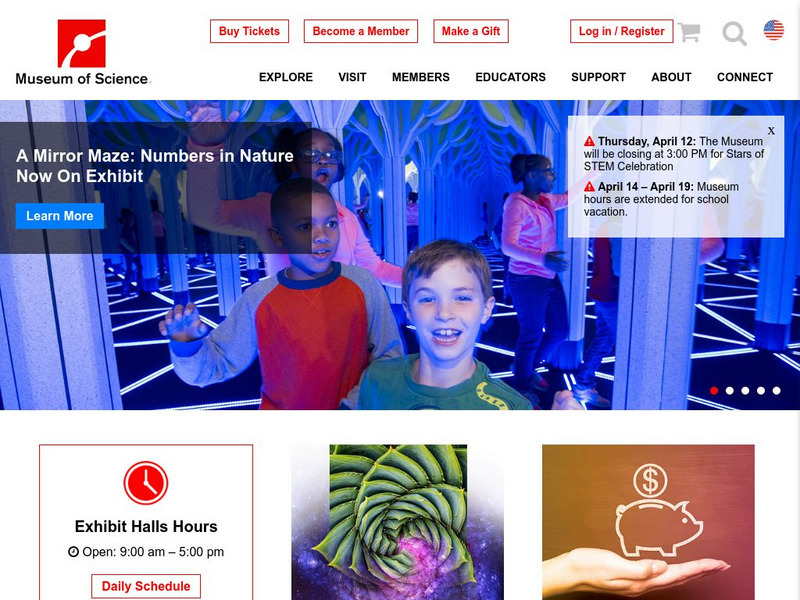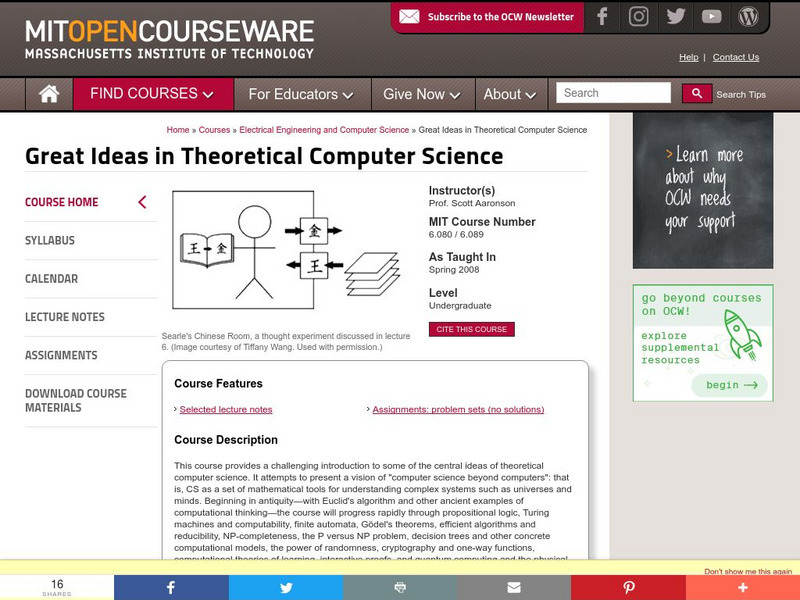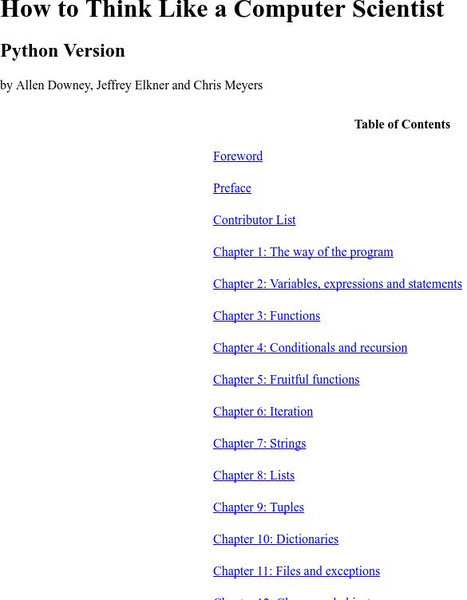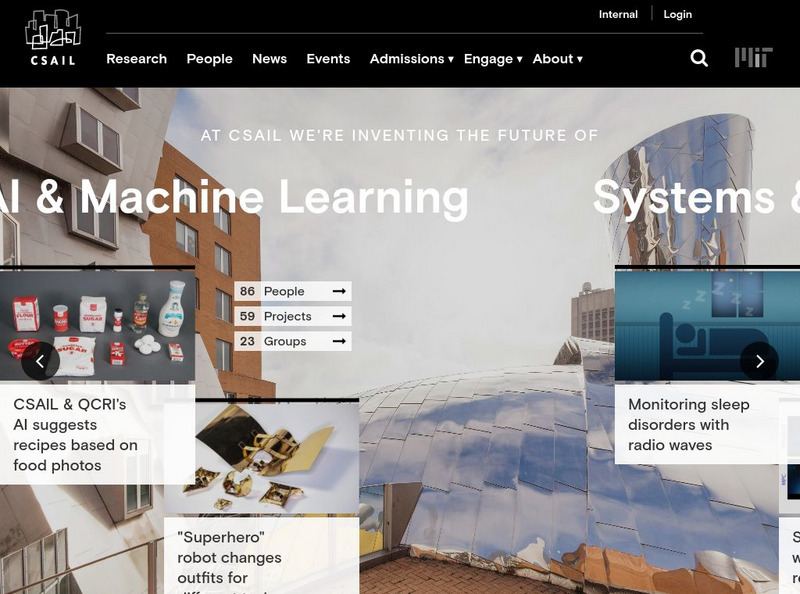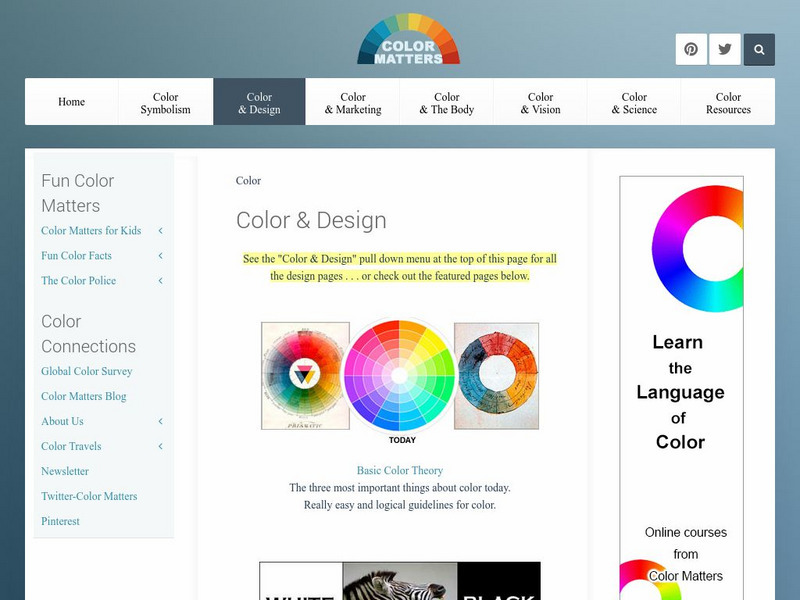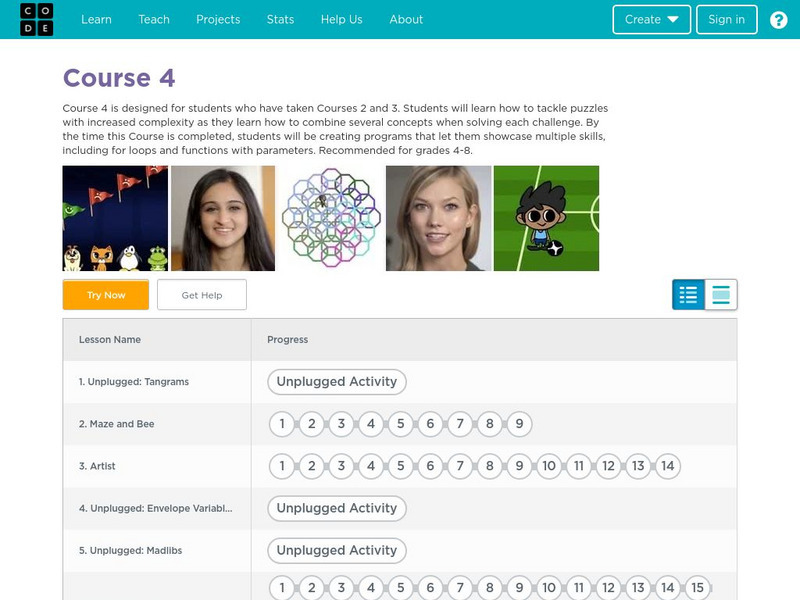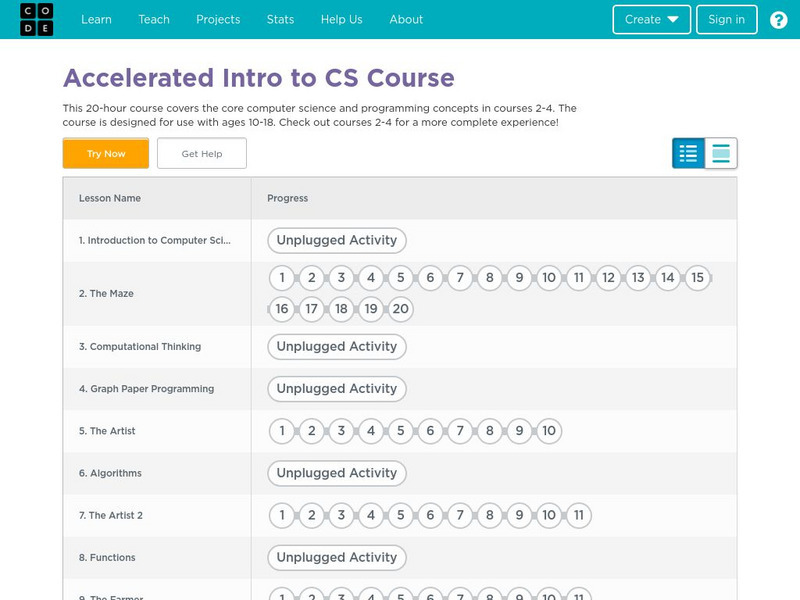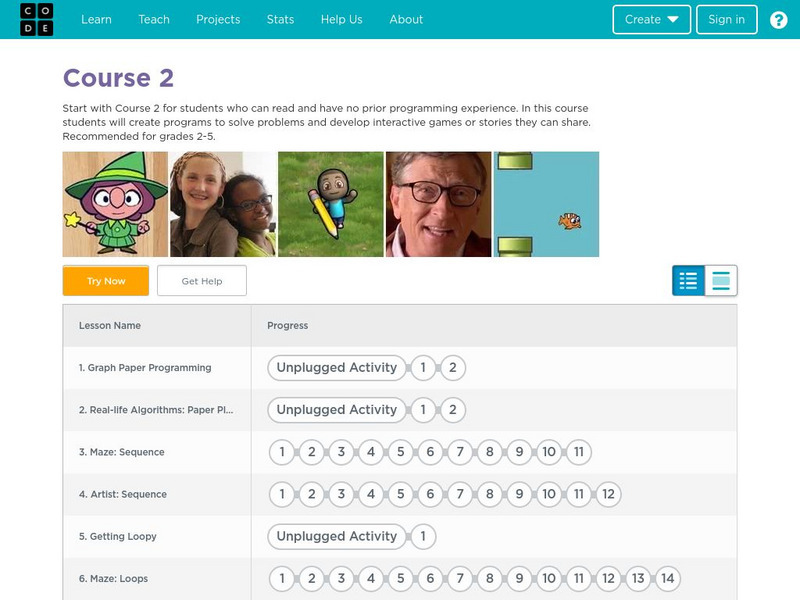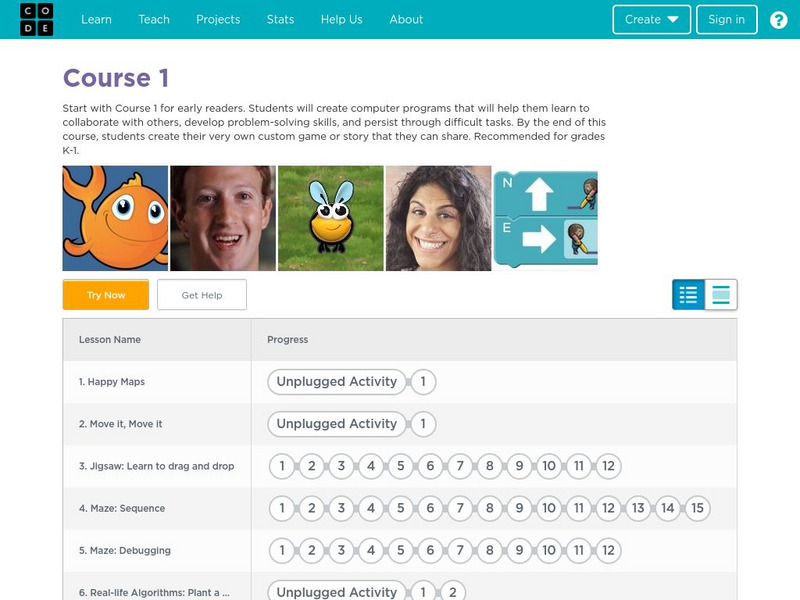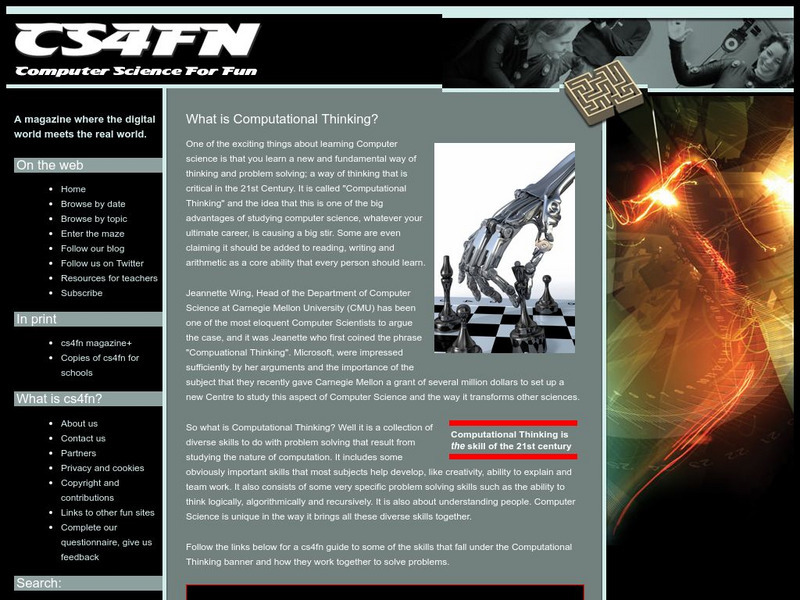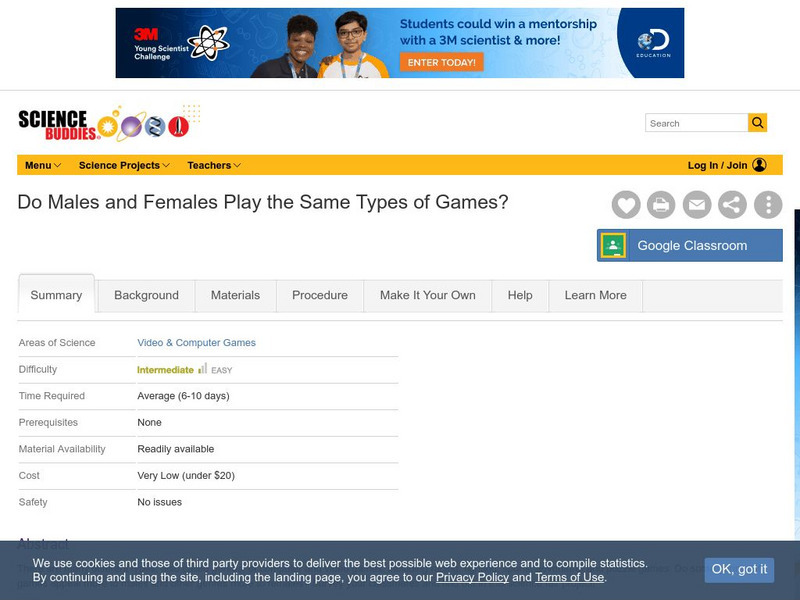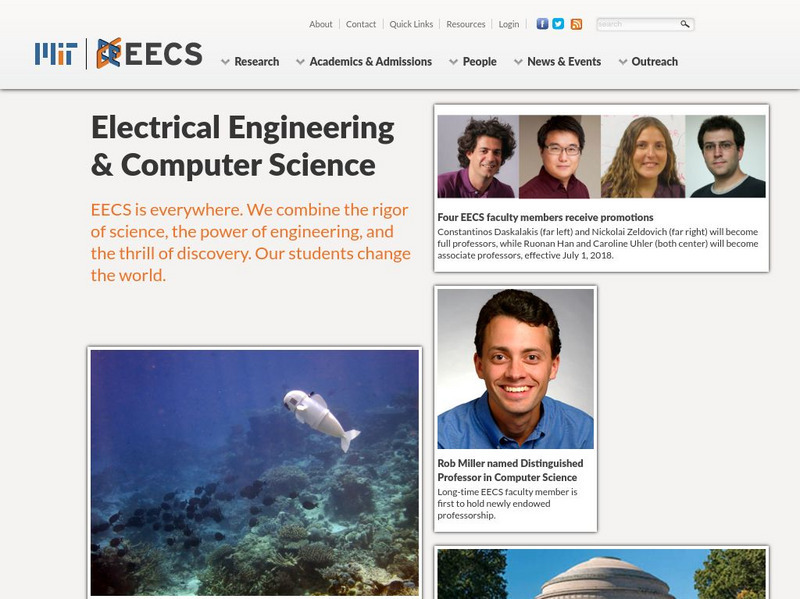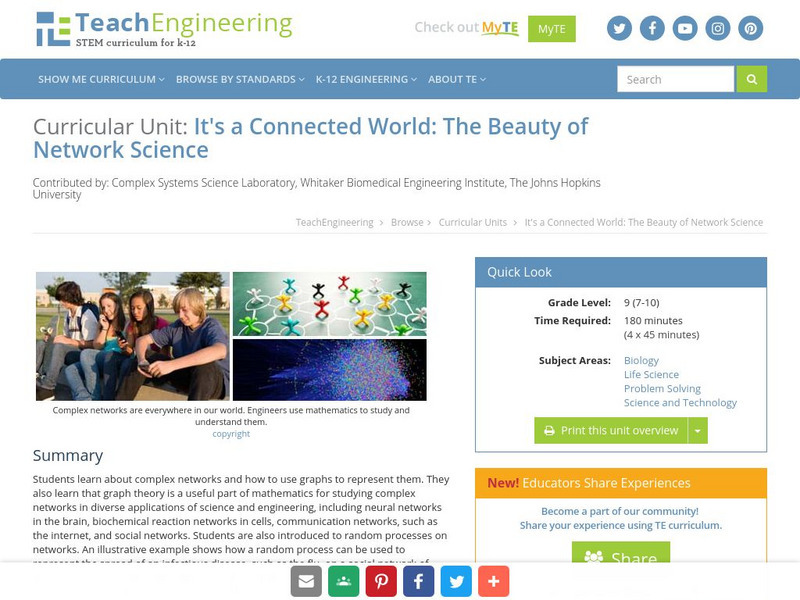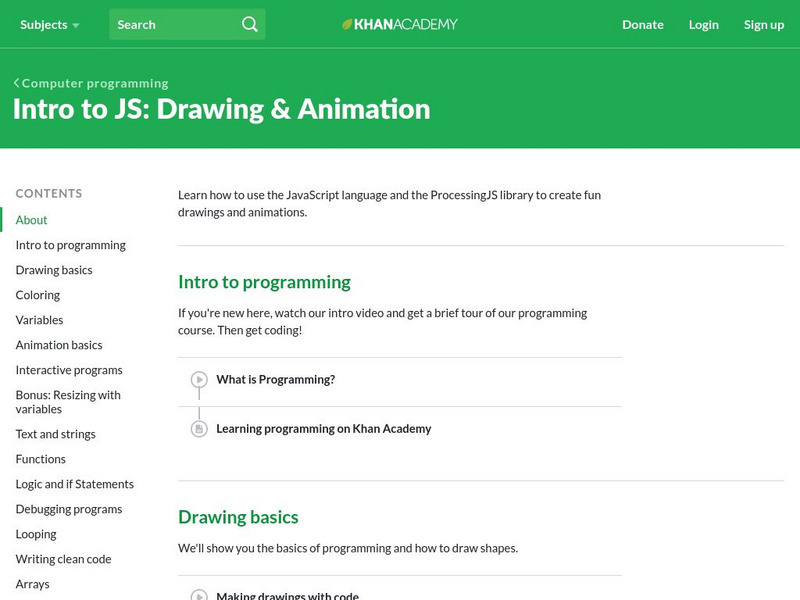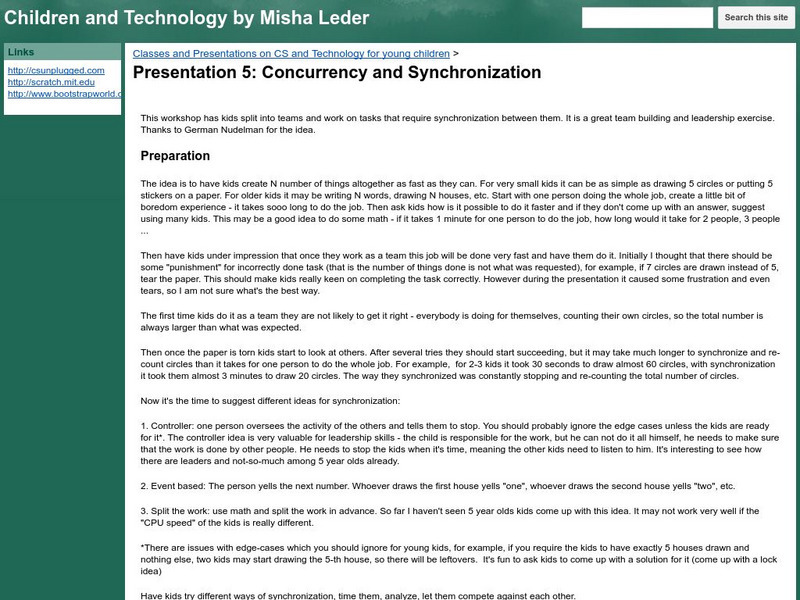Hi, what do you want to do?
TeachEngineering
Teach Engineering: Hurricane! Saving Lives With Reasoning & Computer Science
Students develop and apply the distance formula and an x-y coordinate plane on a hurricane tracking map, and then use a map scale to determine distance in miles. Then, using MATLAB computer science programming language, students help...
Georgia Department of Education
Ga Virtual Learning: Handwriting Analysis and Computer Forensics
In this interactive tutorial you will learn about a branch of forensic science known as computer forensics. This branch involves the scientific examination and analysis of data held on, or retrieved from, computer storage media in such a...
University of Canterbury
University of Canterbury: Cs Unplugged: Routing and Deadlock
Computer networks are based on passing messages from computer to computer. This sounds simple in principle, but in practice all sorts of contention and bottlenecks can occur. This activity gives some first hand experience of such issues,...
Museum of Science
Museum of Science, Boston
This site from the Museum of Science provides links to all aspects of the museum. An on-line exhibit and a link for educator tools are offered.
Massachusetts Institute of Technology
Mit: Open Course Ware: Great Ideas in Theoretical Computer Science
A complete course on theoretical Computer Science presented at the college undergraduate level. The course attempts to describe Computer Science beyond the computer, focusing on mathematical tools, complex systems and classic problems,...
Carnegie Mellon University
Carnegie Mellon: Stehlik: Advanced Placement Computer Science
This site includes numerous links to information about the Advanced Placement Computer Science course and exam.
Other
How to Think Like a Computer Scientist: Python Edition
Python is a popular programming language for both beginning programmers and seasoned veterans. This free digital book teaches how to think like a computer scientist using the Python programming language.
Massachusetts Institute of Technology
Mit: Computer Science and Artificial Intelligence Laboratory
This site contains a variety of resources, information about, and research concerning artificial intelligence.
University of St. Andrews (UK)
University of St. Andrews: John Von Neumann
The University of St. Andrews provides a biography on John von Neumann. Learn about his contributions to game theory and computer science.
Other
Color Matters: Color and Design
This site discusses color and how it works in art, science, and the mind. Explore the many ways that color affects us.
Other
Computer Science Education Group: Distributed Expertise Learning Modules
Interdisciplinary learning modules that provide engaging and easy-to-use materials for teaching computer science concepts in other content courses.
Code.org
Code Studio: Computer Science: Course 4
Middle level students delve deeper into computer programming topics to identify flexible solutions to more complex problems, to ultimately create games and stories they can share.
Code.org
Code Studio: Computer Science: 20 Hour Intro Course
This twenty-hour course introduces elementary and middle school students core computer science and programming concepts.
Code.org
Code Studio: Computer Science: Course 2
For readers with no prior computer programming experience, students create programs to solve problems and create interactive games or stories to share with others.
Code.org
Code Studio: Computer Science: Course 1
Early readers create computer programs that will help them learn to collaborate with others, develop problem solving skills, and persist through difficult tasks. Their ultimate end task is to create a custom game or story.
Other
Computer Science for Fun: What Is Computational Thinking?
Find out about teaching computational in the classroom, and then link to some classroom resources and student activities to teach these skills.
Science Buddies
Science Buddies: Do Males and Females Play the Same Types of Games?
There are many different types, or genres, of computer and video games. This includes racing, fighting, sports, adventure, and puzzle games. Survey your classmates in this science fair project to find out if certain genres of games...
Khan Academy
Khan Academy: Computer Programming: Meet the Professional
Find out about the diversity in the careers of computer science and computer programmers by meeting people in this field from all over the word.
TeachEngineering
Teach Engineering: Our Bodies Have Computers and Sensors
Students learn about the human body's system components, specifically its sensory systems, nervous system and brain, while comparing them to robot system components, such as sensors and computers. The unit's life sciences-to-engineering...
Massachusetts Institute of Technology
Mit: Department of Electrical Engineering and Computer Science
This is the website for the Massachusetts Institute of Technology's Department of Electrical Engineering. The site has links to research, academics, etc.
TeachEngineering
Teach Engineering: It's a Connected World: The Beauty of Network Science
Students learn about complex networks and how to use graphs to represent them. They also learn that graph theory is a useful part of mathematics for studying complex networks in diverse applications of science and engineering, including...
Khan Academy
Khan Academy: Computer Programming: House Class Demo
A class demo to help students visualize and learn how to program drawings using JavaScript.
Khan Academy
Khan Academy: Computer Programming: Intro to Js: Drawing & Animation
In these tutorials, you'll learn how to use the JavaScript language and the Processing JS library to create fun drawings and animations.
Curated OER
Google for Education: Children and Technology: Concurrency and Synchronization
Through attempts to perform tasks in sync with each other, students experience the computer science challenges of concurrency and synchronization.







